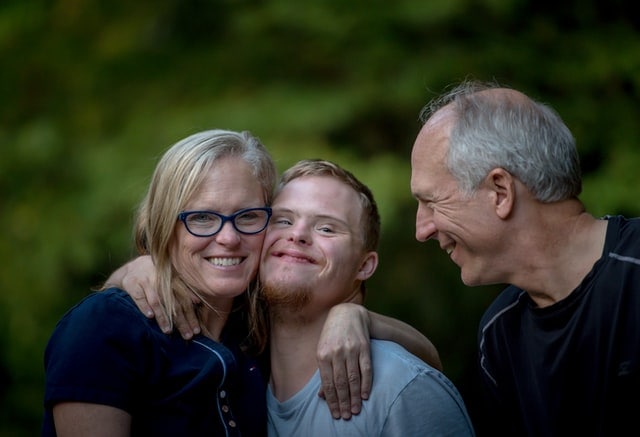In New Jersey, everyone who reaches the age of 18 (the legal age of majority) can legally make their own decisions. This is true even when a child has disabilities that may prevent them from making sound decisions about their care or other important areas of life.
To address this challenge, parents may want to establish a guardianship. A guardian is someone who can act on behalf of either a minor or an incapacitated person (also known as a “ward”). The guardian ensures that their ward’s health, welfare, and safety needs are met while protecting their ward’s rights in key aspects of daily life.
Speaking with an experienced guardianship attorney in New Jersey at The Matus Law Group can help you understand your roles and responsibilities if you want to pursue guardianship for your child. Contact The Matus Law Group, led by founder Christine Matus, at (732) 785-4453 to receive knowledgeable guidance tailored to your specific situation from our estate planning lawyers in Monmouth.
When Does Someone Need a Guardian?
A guardianship is necessary when an individual is unable to manage their own affairs or make independent decisions. If a person lacks the competence to fully understand legal, medical, or financial matters, they cannot provide informed consent. In these cases, a guardian acts as a necessary protector.
For instance, a young adult with an intellectual or developmental disability living in Red Bank might be able to manage some daily routines, but they might struggle to grasp the long-term implications of invasive medical procedures or financial decisions. They still need a parent or other trusted adult appointed as guardian to give informed consent for surgeries, medications, or major financial commitments.
Establishing the level of incapacity is important to determine the kind of arrangement that fits your situation. Guardianship and conservatorship are legal arrangements in which a person can be authorized to make decisions regarding another person’s well-being. However, while some people may use the terms interchangeably, they apply to very different scenarios under NJ law.
- Guardianship is for an individual who is incapacitated. The court appoints a guardian because the individual is cognitively unable to make informed decisions regarding their own person or property.
- Conservatorship is generally for an adult who is of sound mind but requires assistance. This is often a voluntary arrangement where a competent individual (often due to age or physical frailty) asks the court to appoint a conservator to manage their finances. Unlike a guardianship, a conservatee usually consents to the help.
For families supporting a loved one with disabilities or special needs, a Guardianship is frequently the most appropriate option. Unlike a conservatorship, it provides the comprehensive authority needed to make decisions when a loved one cannot provide informed consent. New Jersey capacity laws are nuanced, and choosing the wrong arrangement can cause significant delays. Consult a skilled attorney who can evaluate your specific situation and guide you toward the legal tool that best protects your family’s future.
Types of Guardianship
Your child may be able to manage some aspects of his or her life, but not everything. In those situations, a more limited type of guardianship may be appropriate. There are two types of guardianships:
- General Guardianship. A general guardian is necessary when the ward is unable to make any decisions on their own. This expansive role is sometimes referred to as “plenary” guardianship.
- Limited Guardianship. Some guardianship arrangements are limited so that the guardian may make decisions only in specific areas. For example, a guardian may be authorized to make legal decisions but not financial ones. These limits are usually expressed in categories such as education, healthcare, finances, and residential decisions.
New Jersey Guardianship Attorney – The Matus Law Group

Christine Matus
Founding attorney Christine Matus leads The Matus Law Group, a New Jersey firm focused on guardianship and life-care planning for children and adults with disabilities. Since her admission to the New Jersey Bar and the U.S. District Court of New Jersey in 1995, she has helped families protect loved ones, clarify decision-making authority, and coordinate long-term support through guardianships, special needs planning, and related estate matters.
Christine also holds leadership roles within the community, including service on the Ocean County Bar Association Board of Trustees and the Attorney Arbitration Committee. Her work with organizations such as 21 Plus, MOCEANS, Inc., and local Filipino community groups reflects a long-standing commitment to advocacy for individuals with disabilities and their families, offering guardianship guidance that is practical, compassionate, and deeply rooted in real-world experience.
Establishing Guardianship
You must petition the court to establish a guardianship. New Jersey guardianship proceedings usually take place in the Superior Court, Chancery Division, Probate Part. In Monmouth County, these matters are handled through the Probate Part in Freehold. Filings are typically processed via the Monmouth County Surrogate’s Office, which serves residents throughout the county, including those in Red Bank and surrounding communities.
As part of the process, the alleged incapacitated person undergoes an evaluation to determine the extent of any disability and the level of support needed. The court will appoint an attorney to represent that person and help ensure that their rights are protected throughout the case. In some matters, this may be an attorney from the Office of the Public Defender; in others, the court appoints a private attorney in good standing. If everyone, including the court-appointed attorney, agrees that guardianship is appropriate, the court will usually hold a brief, uncontested hearing before entering judgment. If there are objections or concerns, the court will conduct a more extensive hearing to address the disputed issues.

How Long Does the Guardianship Process Take in NJ?
In New Jersey, understanding the timeline for guardianship is crucial. In many cases, the process takes several months from the time a family begins working with a professional until the court enters a final judgment. Often, it takes about three to six months from filing the petition, although more complicated or contested matters can take longer.
The guardianship process involves several stages:
- Initial Consultation and Assessment: This step involves meeting with the individual seeking guardianship and assessing the situation. It’s crucial to gather all relevant information and documentation to support the guardianship petition.
- Filing the Petition: Once all necessary information is collected, the next step is to file a formal petition with the appropriate court. For Monmouth County residents, this means filing with the Probate Part of the Superior Court in Freehold.
- Court Proceedings: After the petition is filed, the court schedules hearings to review the case. These hearings allow the judge to assess the situation, hear testimonies, and evaluate the necessity of appointing a guardian.
- Court Judgment: After the hearing, the court issues a judgment. If the judge approves the guardianship, a legal guardian is appointed, and the official guardianship order is issued.
It’s important to note that while many guardianship cases are completed within about three to six months, the timeline can vary based on factors such as case complexity, court schedules, and the responsiveness of everyone involved. In some matters, the process may extend closer to a year or more.
| Stage | Estimated Timeframe | Notes |
|---|---|---|
| Initial Consultation and Assessment | 1–2 weeks | Time to gather documentation and meet with legal counsel |
| Filing the Petition | Immediate to 1 week | Filed once documents are complete; initiates court involvement |
| Court Proceedings | 1–4 months after filing | Includes evaluations, court-appointed attorney, and scheduled hearing |
| Court Judgment | Within weeks after hearing | Final decision and issuance of guardianship order |
Contested Guardianship Proceedings
Although most guardianship petitions go through the legal system quickly, there are instances when the appointment may be challenged. Sometimes, an individual might object to guardianship and claim that they are able to manage their affairs without the help of a guardian. In other cases, a family member may file a competing petition to become the guardian.
These cases can be emotionally complex and involve litigation. By speaking to an experienced guardianship lawyer, you may be able to find a fair and mutually agreeable solution to these kinds of issues. If a compromise is not possible outside of litigation, we are ready to help you get the matter resolved through the court system.
The guardianship attorneys at the Matus Law Group understand the difficulties involved in these situations. We can work with you one-on-one to create a plan that ensures your loved one receives the support and care he or she requires. We know how overwhelming and confusing dealing with the legal system can be. Our lawyers will answer all your questions and make every effort to ensure that the process is as smooth and quick as possible.
Contact Guardianship Attorneys at the Matus Law Group Today
It’s always wise to hire a New Jersey guardianship attorney who knows the process well to help you with your application. A skilled lawyer can help you understand your role and avoid making mistakes when it comes to guardianship. Whether you’re located in Toms River or Red Bank, elsewhere in Monmouth County, or anywhere throughout New Jersey, The Matus Law Group’s team of experienced guardianship lawyers in New Jersey can walk you through the application process and represent you if a hearing becomes necessary. Contact us today at (732) 785-4453 to schedule a consultation.



